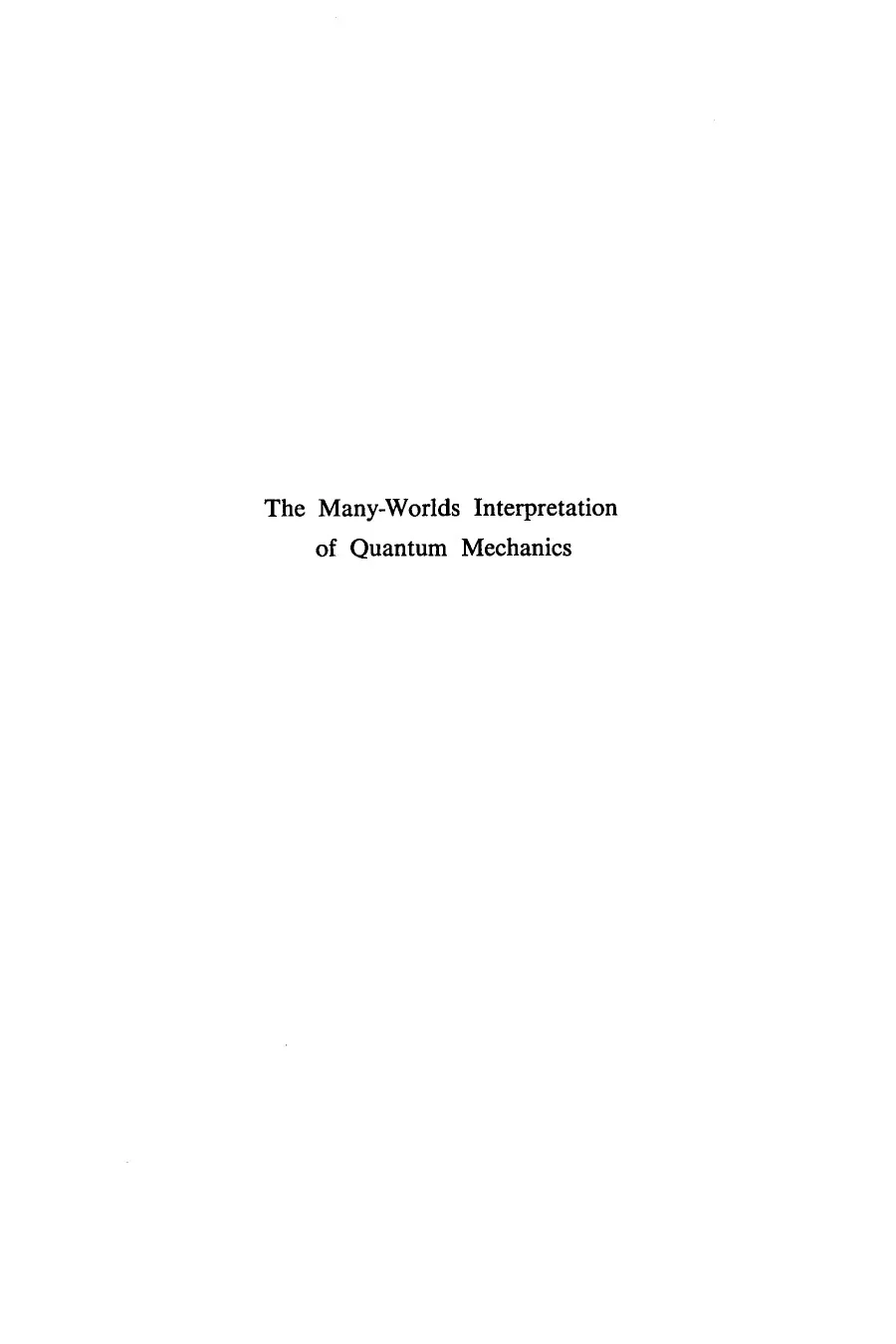The Many-Worlds Interpretation of Quantum Mechanics (level 3 multiverse) dissertation
4.5
Reviews from our users

You Can Ask your questions from this book's AI after Login
Each download or ask from book AI costs 2 points. To earn more free points, please visit the Points Guide Page and complete some valuable actions.Introduction to "The Many-Worlds Interpretation of Quantum Mechanics (Level 3 Multiverse) Dissertation"
"The Many-Worlds Interpretation of Quantum Mechanics" represents a paradigm-shifting exploration of one of the most fascinating interpretations of quantum theory. Originally formulated as a doctoral dissertation, this work revolutionized how we understand the nature of reality by proposing the mind-bending concept of multiple universes branching from every quantum interaction. This book extends beyond the technicalities of quantum mechanics to provide philosophical, mathematical, and theoretical perspectives that challenge traditional notions of existence and observation.
In the book, I, Hugh Everett III, introduce what has come to be known as the Many-Worlds Interpretation (MWI) of quantum mechanics, asserting that instead of 'wave function collapse,' every possible outcome of a quantum event occurs in a separate, parallel branch of reality. These alternate realities coexist but do not interact. As the foundation of what I call the "Level 3 Multiverse," this interpretation confronts the reader with profound implications for the nature of determinism, time, and observational reality. For physicists, philosophers, and curious thinkers alike, this book is more than a scientific treatise; it is an intellectual journey into the infinite possibilities of our quantum universe.
Through this dissertation, my aim is not only to describe the mathematical framework of MWI but also to address the philosophical consequences and explain why this interpretation solves persistent problems in quantum mechanics, such as the observer effect and the infamous "Schrödinger's cat" paradox. Readers will navigate the interplay of probability, measurement, and existence itself—pushing the limits of what can be understood about nature's deepest truths.
Summary of the Book
In this seminal work, we start by examining the inconsistencies and challenges posed by earlier interpretations of quantum mechanics, including the Copenhagen Interpretation and its reliance on the wave function collapse. I then introduce the concept of unitary evolution, proposing that quantum systems evolve deterministically according to Schrödinger's equation, without the need for collapse.
The key advancement comes from the recognition that the observer and observed system are both quantum mechanical entities in constant interaction. Thus, every observation results in a branching of the wave function, leading to the creation of multiple, non-interacting parallel worlds. For every quantum decision point, an infinite number of universes spring forth simultaneously, representing every possible outcome.
The later chapters of the book delve into the mathematical foundation supporting this idea, exploring Hilbert spaces, decoherence theory, and how they all align with the principles of MWI. Finally, we discuss the philosophical and practical implications of this model, from the nature of free will and determinism to the plausibility of exploring other branches of the multiverse.
Key Takeaways
- The Many-Worlds Interpretation eliminates the need for wave function collapse, simplifying quantum mechanics into a deterministic framework.
- Every decision or quantum event results in a branching universe, where every possible outcome occurs in a separate, parallel reality.
- Our perception of reality is fundamentally tied to the specific quantum branch we inhabit, but alternate branches remain equally real.
- This interpretation offers profound implications for physics, philosophy, and even science fiction, pushing the boundaries of human understanding.
- The Level 3 Multiverse concept proposed here ties directly into modern research on quantum information, computation, and parallel universes.
Famous Quotes from the Book
"In the Many-Worlds framework, the universe's infinite possibilities are not just abstractions—they are concrete realities coexisting unseen."
"The paradox of Schrödinger's cat ceases to be a paradox when one accepts that there is no singular outcome—only coexisting realities."
"The observer does not collapse the wave function; the observer becomes part of the superposition."
Why This Book Matters
"The Many-Worlds Interpretation of Quantum Mechanics" is more than just a scientific dissertation; it is a transformative work that has redefined how humanity views the universe. By challenging the orthodoxy of wave function collapse, this book has sparked new lines of inquiry in quantum physics, mathematics, and even existential philosophy.
For scientists, this interpretation offers a coherent and deterministic view of quantum mechanics, paving the way for advancements in areas like quantum computing and the study of decoherence. For philosophers, it raises profound questions about identity, free will, and the nature of reality itself. Even casual readers with a curiosity for science can find themselves captivated by its ideas, which echo through contemporary discussions on multiverse theory and the intersection of quantum mechanics with consciousness.
Ultimately, this book matters because it dares to ask—and answer—one of the most profound questions of all: what does it mean to exist in a universe governed by quantum rules?
Free Direct Download
You Can Download this book after Login
Accessing books through legal platforms and public libraries not only supports the rights of authors and publishers but also contributes to the sustainability of reading culture. Before downloading, please take a moment to consider these options.
Find this book on other platforms:
WorldCat helps you find books in libraries worldwide.
See ratings, reviews, and discussions on Goodreads.
Find and buy rare or used books on AbeBooks.
1181
بازدید4.5
امتیاز50
نظر98%
رضایتReviews:
4.5
Based on 0 users review
"کیفیت چاپ عالی بود، خیلی راضیام"


